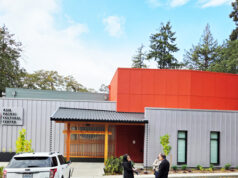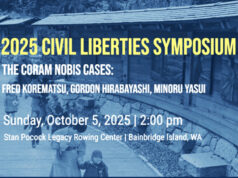DESTINATIONS The National Nordic Museum
Text and photos by David Yamaguchi
The North American Post
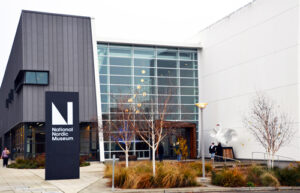
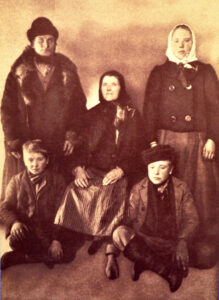
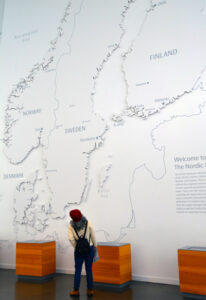
The National Nordic Museum, Ballard, highlights the journeys of Nordic immigrants to the Pacific Northwest. The Nordic countries include Denmark, Finland, Iceland, Norway, Sweden, the Faroe Islands, Greenland and Åland (near Finland).
Why cover the National Nordic Museum in Ballard in the NAP? The question is apt, for each issue of this paper is already filled chockablock with local Nikkei (Japanese diaspora) news, to the extent that even national and international Nikkei and Japan-related stories are generally excluded.
There are at least four reasons. The first is that the Nordic Museum is an immigrant museum. It proudly tells the history of the fisherman and boat builders who made their homes on the ship canal. In their stories, we can see variants on our own family narratives and how local Scandinavian ones intertwine with ours. For example, the Northern Pacific Railroad played a key role in transporting their late arrivals to the West Coast. At first, in US East Coast cities, they found themselves like fish out of water.
Maintaining and extending those Northern Pacific tracks would provide many a Japanese Issei laborer his first job in the U.S.
Second, we must be world citizens, capable of connecting with many kinds of people and conversing on topics beyond our ken. We must not remain frogs in wells, with detailed knowledge of our immediate environs but ignorant of the larger landscape.
Third, we should visit the Nordic Museum to learn and dream. That is, the big picture is that after four, going on five, generations here on the land, we are starting to build a community that has its own respectable-looking community centers. We are at a point perhaps approaching where the Seattle Nordic community was when its museum it was housed in an old school building. How can we best display the Issei and Nisei artifacts we have?
Like the aging Nisei veterans, who in the 1990s thoughtfully renovated their hall for the next generation, it is time now for Seattle Sansei to similarly start thinking about completing legacy projects for the future. The National Nordic Museum was built by the great grandchildren and great-great grandchildren of fishermen and loggers. What is similarly possible for us today and down the line (and how can we get there)?
Fourth, in approaching the Nordic Museum as a model for the Nikkei community’s future, it is important to note that it is of national caliber. It achieved this status in 2019, after opening its new building in 2018. In other words, it is on a level comparable to those on our national mall in Washington, D.C. We should take the time to see such sights.
Additional reasons to visit the Nordic Museum are the usual ones. Superimposed on normal, wet, Seattle weather in recent years have been lingering COVID-19, hot summer temperatures and wildfire smoke. Fine plastic particulates in the smoke can induce strokes. We simply occasionally need interesting airy places to go — to keep from going stir-crazy — that are indoors.
Displays at the Nordic Museum
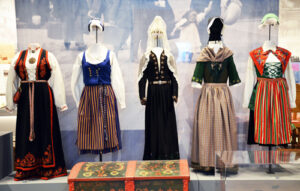
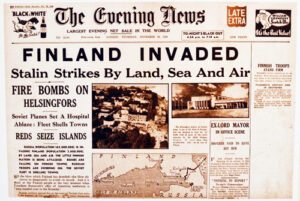
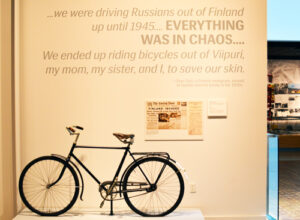
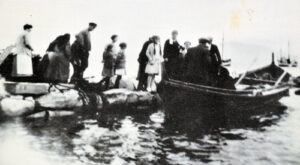
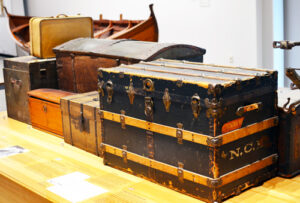
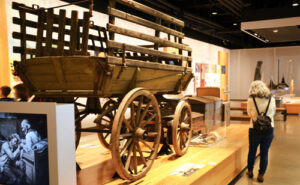
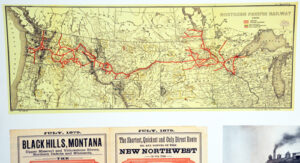

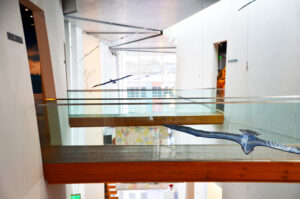
National Nordic Museum
2655 NW Market St, Seattle
Tuesday to Sunday, 10 AM – 5 PM
tickets $5 – $20, Free on First Thursdays
☎️206-789-5707
https://nordicmuseum.org

